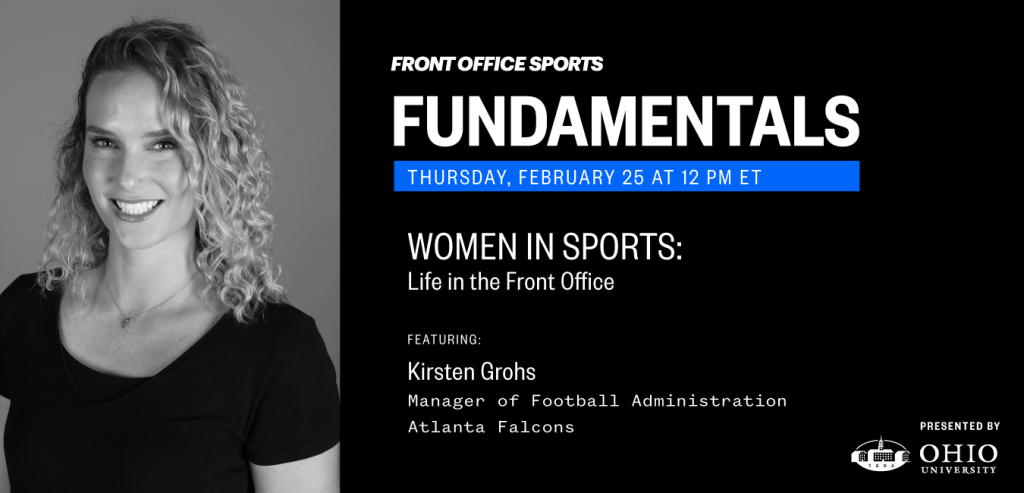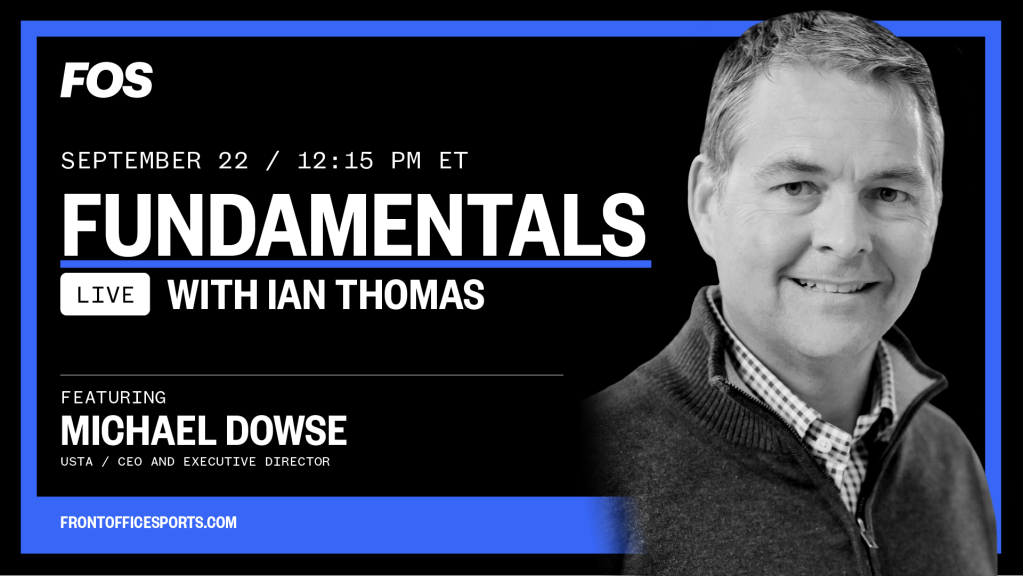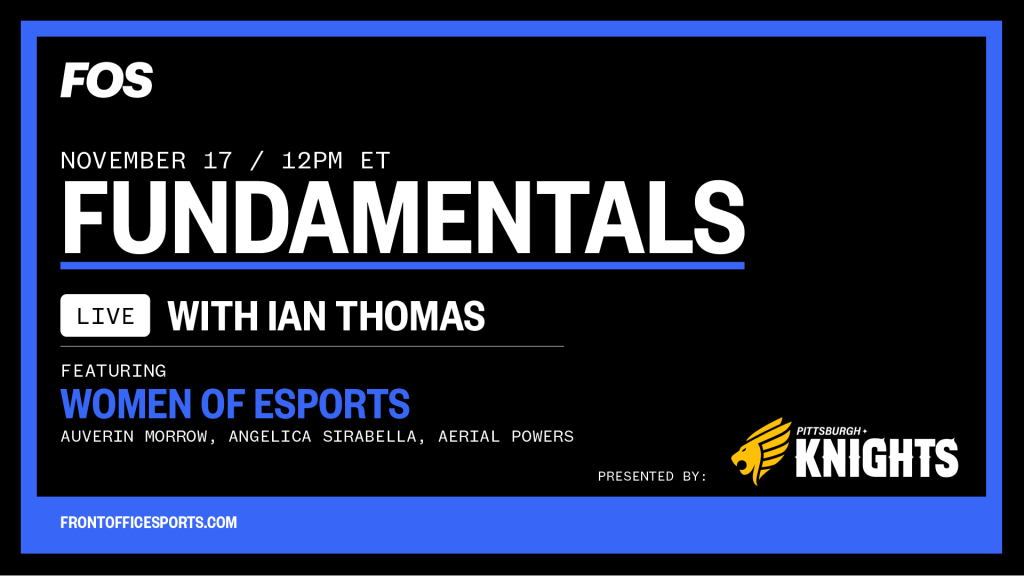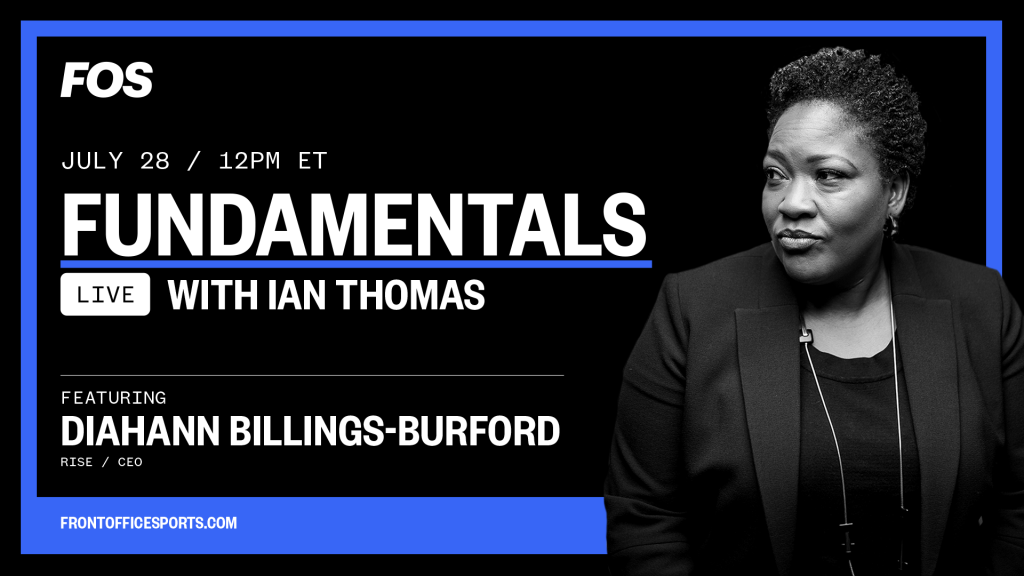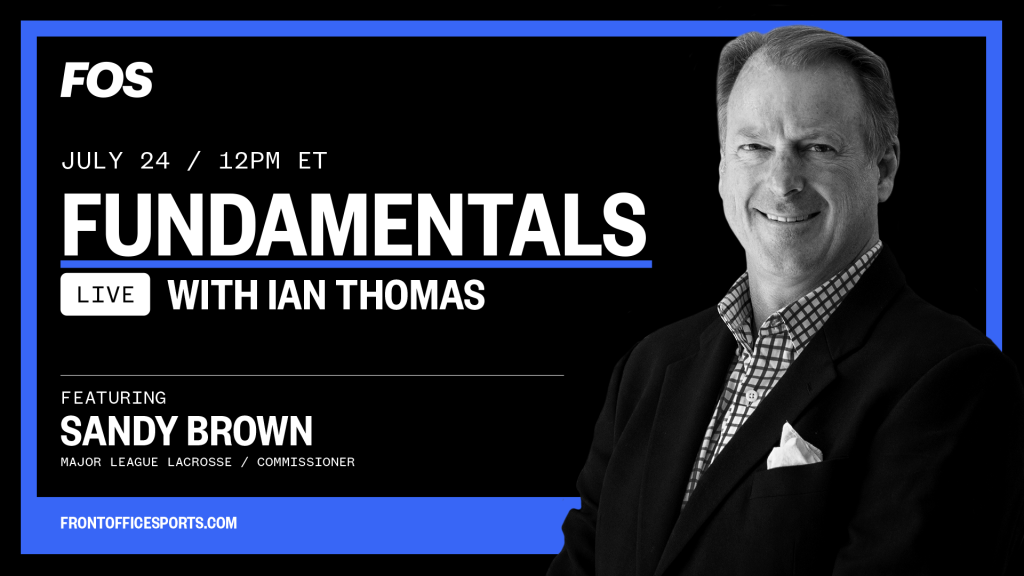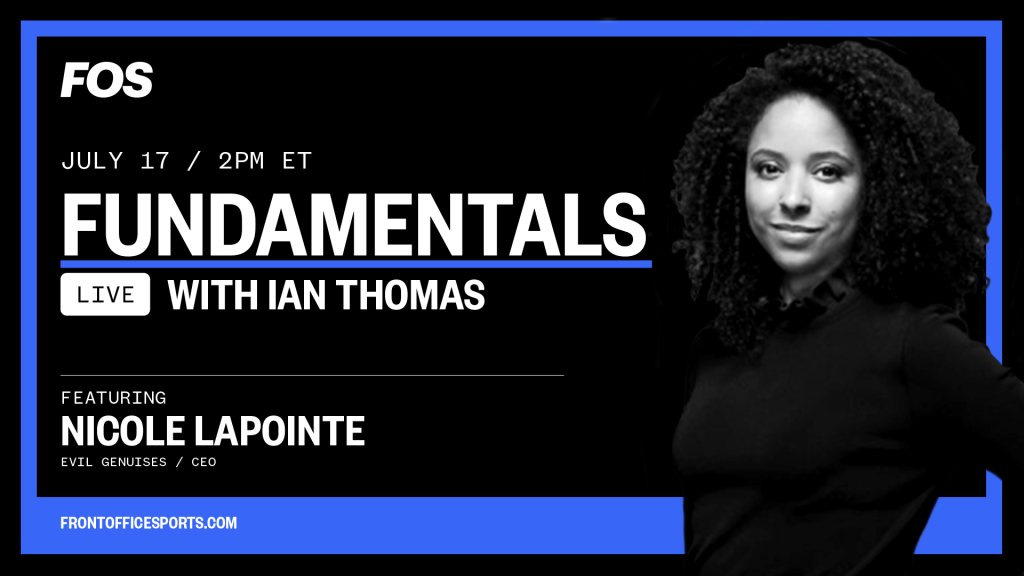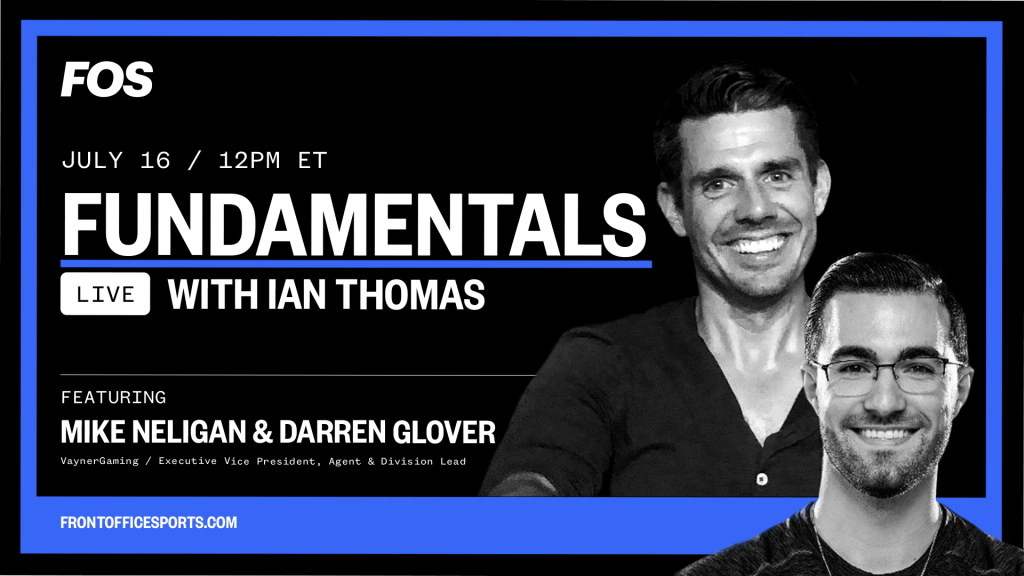Big 12 Commissioner Bob Bowlsby joined guest host Emily Caron on the penultimate episode of a three-part collegiate series of Fundamentals with Ian Thomas. The pair talked at length about how the coronavirus may forever change college sports, as well as Bowlsby’s involvement in the future of NIL rule changes.
On college sports coming back – 1:41:
Bowlsby: “There’s likely to be a new reality that we’re all going to be dealing with. I don’t believe we’re going back to the old normal and so we’re going to have to get accustomed to that. I think it’s true in athletics, but it’s also true in virtually every walk of our lives.
We’re going to have to get comfortable with the fact that the virus is going to be around for awhile, and it may change the way we prepare our facilities. That may change the way we prepare ourselves. “
Planning on the return to play – 3:32:
Bowlsby: “I don’t think there’s anybody around who can forecast just exactly what that looks like. And so that means we have to do a lot of scenario planning. And that means we have to hope for good outcomes. But I don’t think much of hope as a strategy. And I think we have to also at the same time plan for the various eventualities. And there are lots of them because there are many, many inputs and many variables that have to be taken into account.”
Athletics’ importance to society – 5:51:
Bowlsby: “Athletics are important to our schools. They’re important for the institution’s brand. They’re important for the lifestyle of the students and important for the culture of the university. And so it’s one of the things that’s most difficult for our American population to do without. We love our sports and we love our competition and we love trying to figure out who’s number one. And it’s going to take all of us with our hands on the oars to decide when it’s time to go back to campus. And then from the athletic standpoint, we just have to make sure that we do it the right way.”
What goes back into ensuring athletes and fans are safe – 6:32:
Bowlsby: “We have to make sure that locker rooms are properly sanitized along with weight rooms and training rooms. The personnel are tested and that there are, whether it’s an antibody test or a point-of-contact test, or taking everybody’s temperature every day when they come in.
This is a very virulent virus and it’s going to be around for awhile. It’s like chickenpox or like HIV or like SARS or MERS. It isn’t going away. We may be able to mitigate its impact and mitigate how deadly it is by getting a vaccine. But it isn’t going to go away immediately and we’re going to be living with it for a while. So we need to figure out how to coexist.”
On future disruptions – 8:55:
Bowlsby: “It’s hard to imagine that we’re going to get all the way through a fall and a winter sports season without institutions having flare ups. I just think college campuses are Petri dishes for infectious diseases. They always are. There’s lots of people and they’re living in close quarters and they’re partying and interfacing and there’s just lots going on.”
“Some of that is going to find itself in the athletics population. And one of the things that’s very difficult about this virus is you can carry it for a long time before you know you’re infected. And so you can infect a great many other people prior to the time you even know that you’ve come in contact with the disease.”
“And so I don’t think it’s unreasonable to expect that there will be disruptions during the season. And that’s where the split season comes from. I don’t think we would ever schedule to play a split season in football or basketball or anything else. But if we got to the middle of the season and found that infections were running wild we may very well be forced into that sort of choice.”
When plans start coming together – 12:55:
Bowlsby: “By the middle of July, we’re going to have to have a pretty good indication that we can go back to practicing and getting prepared or we’re not going to be able to play on Labor Day weekend. And that’s when we have to start making some decisions about what that structure looks like during the fall.”
Will fans love sports the same – 26:02:
Bowlsby: “It’s part of the fabric of capitalism that we compete with one another. And so I think the appetite for sports will continue. I think the manner in which we consume it will probably evolve in the short term and may even evolve over the long term.”
Thoughts on NIL rule changes – 28:41:
Bowlsby: “I have to admit, my thinking on it has changed substantially over the time I’ve been involved in the working group because if all these governmental agencies, including the federal government, are going to get involved in this, we need to accept that it’s going to happen and help to shape how it plays itself out. And so that’s really the process that we’re in right now.”
Bowlsby’s appearance wrapped up a three-part college athletics series on Fundamentals. The other guests were Pac-12 commissioner Larry Scott and on Learfield IMG College CEO Cole Gahagan.
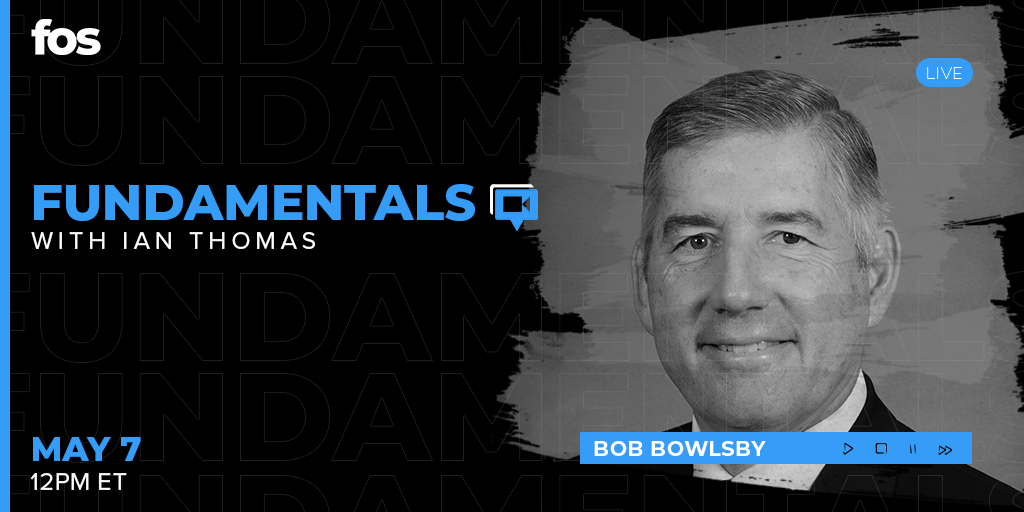
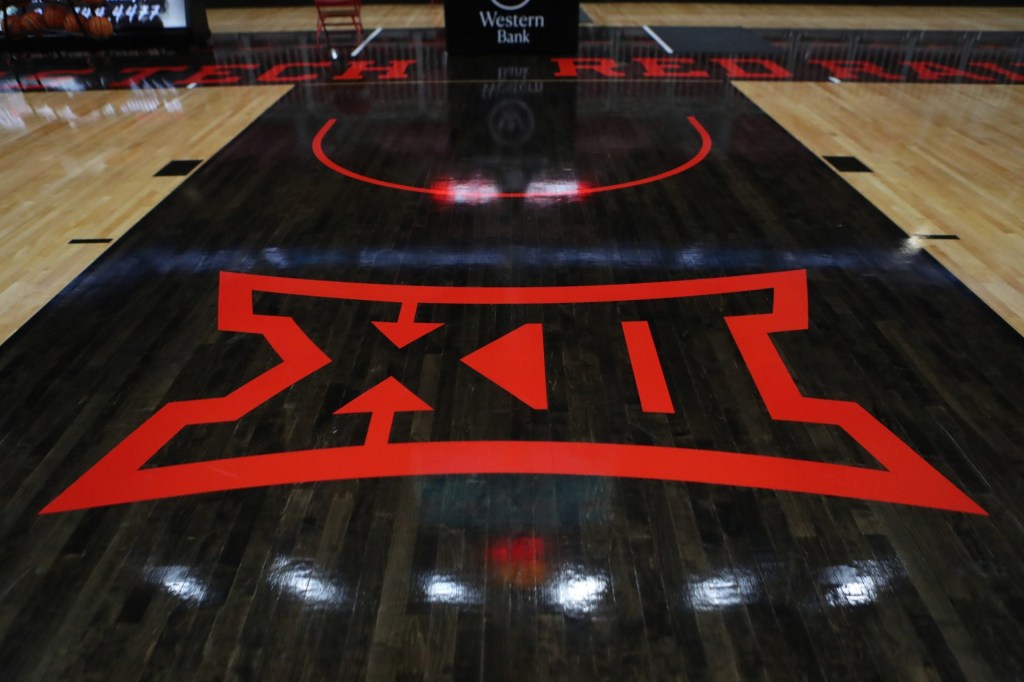



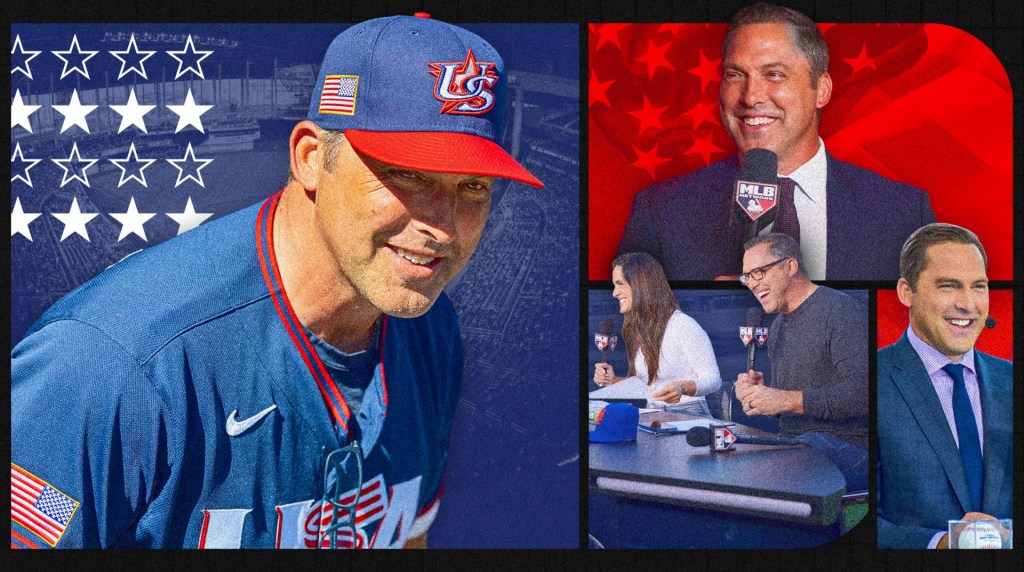


![[Subscription Customers Only] Jun 15, 2025; Seattle, Washington, USA; Botafogo owner John Textor inside the stadium before the match during a group stage match of the 2025 FIFA Club World Cup at Lumen Field.](https://frontofficesports.com/wp-content/uploads/2026/02/USATSI_26465842_168416386_lowres-scaled.jpg?quality=100&w=1024)
